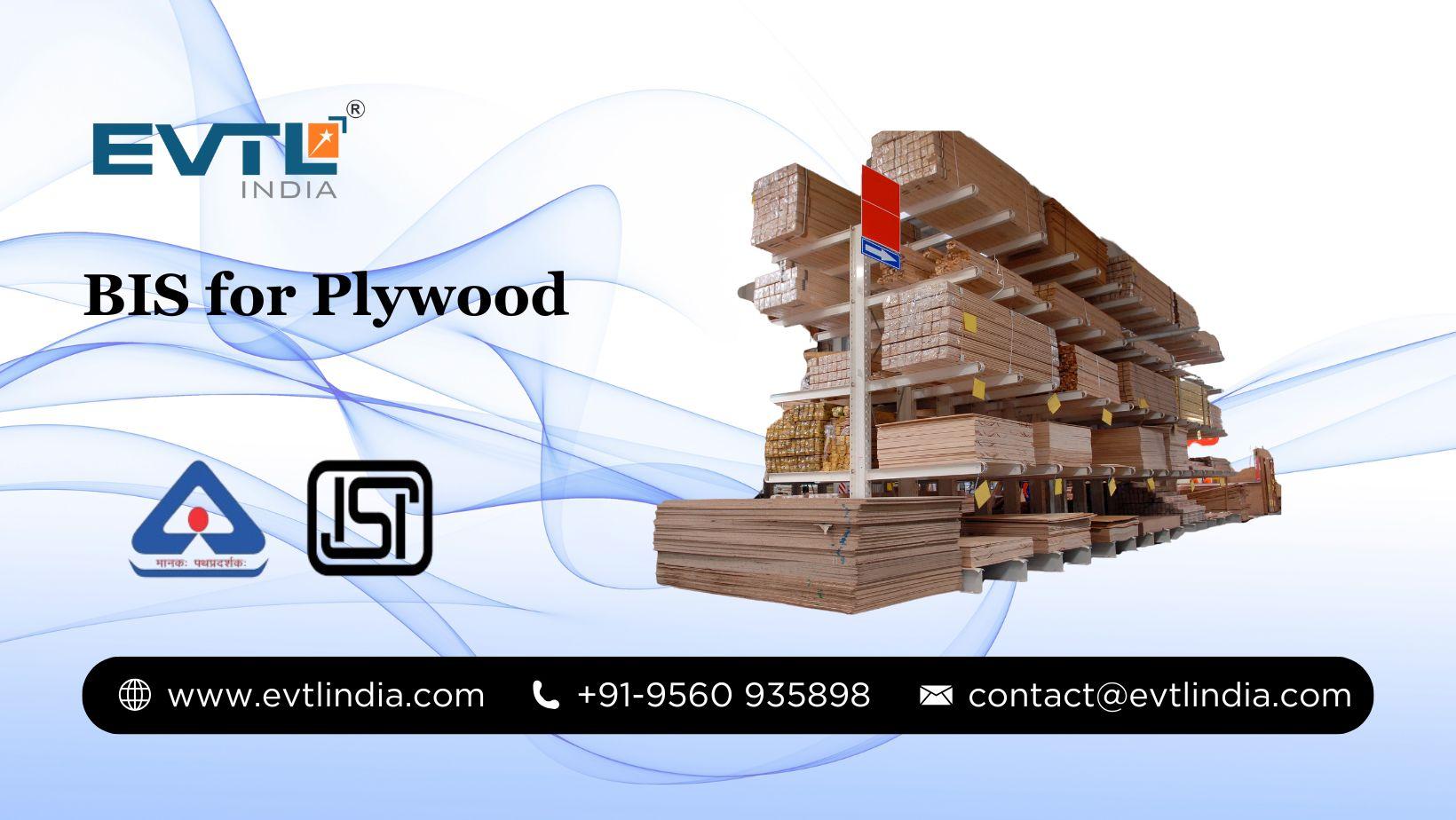BIS Certification for Plywood: Ensuring Quality, Safety, and Market Trust

Plywood is one of the most widely used construction and furniture materials in India. Its strength, durability, and versatility make it an essential component in homes, offices, industrial structures, and even interior décor. However, plywood also needs to meet strict quality and safety standards to ensure that it is fit for use and safe for consumers. To regulate this, the Bureau of Indian Standards (BIS) has made certification mandatory for plywood under specified standards. Obtaining the BIS certification for plywood not only assures compliance but also helps manufacturers build trust in a highly competitive market.
What is BIS Certification for Plywood?
The Bureau of Indian Standards (BIS) is the national body responsible for standardization, certification, and quality assurance in India. For plywood, BIS certification ensures that the product meets the required specifications regarding thickness, bonding strength, resistance to moisture, durability, and safety.
Plywood products in India must comply with Indian Standards (IS), and once tested and approved, they receive the ISI mark for plywood. This ISI mark acts as a symbol of authenticity and quality, assuring consumers that the product has passed stringent quality checks.
ISI Mark for Plywood: A Symbol of Trust
The ISI mark for plywood is mandatory for several categories of plywood including general-purpose plywood, marine plywood, decorative veneers, and blockboards. Each of these products must comply with specific IS codes such as:
-
IS 303: General-purpose plywood
-
IS 710: Marine plywood
-
IS 1328: Veneered decorative plywood
-
IS 1659: Blockboards
The ISI mark on plywood assures buyers and end-users that the product:
-
Has been manufactured according to BIS-approved standards.
-
Ensures durability and resistance against termites, moisture, and warping.
-
Meets environmental and safety norms for sustainable use.
Why BIS Certification for Plywood is Important
The significance of BIS for plywood goes beyond regulatory compliance. It has broader implications for manufacturers, traders, and consumers.
-
Consumer Safety: Certified plywood guarantees safety, as non-standard products may release harmful chemicals or fail structurally.
-
Market Acceptance: Products with BIS certification gain better acceptance in government tenders, institutional purchases, and export markets.
-
Brand Reputation: Carrying the ISI mark enhances brand credibility and positions the manufacturer as a trusted player.
-
Legal Compliance: Selling non-certified plywood is a punishable offense under the BIS Act, ensuring strict market discipline.
-
Export Opportunities: BIS certification boosts confidence in international markets where quality standards are non-negotiable.
Process of Obtaining BIS Certification for Plywood
To obtain BIS certification for plywood, manufacturers must follow a structured process:
-
Application Submission: The manufacturer applies to BIS with details of the plywood product, manufacturing unit, and testing facilities.
-
Product Testing: Samples are tested at a BIS-recognized laboratory to verify compliance with the applicable IS standard.
-
Factory Inspection: BIS officials visit the manufacturing facility to inspect production processes, quality control measures, and testing infrastructure.
-
Grant of License: Once compliance is verified, BIS grants a license to use the ISI mark for plywood.
-
Surveillance: Regular audits and market inspections are conducted to ensure continued compliance.
This process can be complex, particularly for new manufacturers or those unfamiliar with BIS requirements.
Role of BIS Consultants for Plywood
Navigating the BIS certification process can be challenging due to the technical, procedural, and regulatory requirements involved. This is where a BIS consultant for plywood plays a vital role.
How BIS consultants help:
-
Provide expert guidance on applicable IS standards for different types of plywood.
-
Assist in preparing documentation, application forms, and compliance records.
-
Coordinate with BIS authorities for smoother testing and inspection processes.
-
Support manufacturers in setting up in-house testing and quality control systems.
-
Ensure timely renewal of licenses and help avoid penalties.
For small and medium manufacturers, engaging a BIS consultant for plywood not only saves time but also ensures accuracy and compliance without unnecessary delays.
Challenges Faced by Plywood Manufacturers in Certification
While BIS certification is mandatory, manufacturers often face challenges in obtaining it. Some common issues include:
-
Lack of awareness of the correct IS standard for their product.
-
Inadequate testing facilities within the factory premises.
-
Delays in sample testing due to limited BIS-approved laboratories.
-
Complex paperwork and compliance requirements.
With professional support from consultants and a structured approach, these challenges can be resolved, making the certification process efficient.
Future of BIS Certification in the Plywood Industry
The demand for high-quality, durable, and eco-friendly plywood is growing rapidly in India and abroad. With stricter quality regulations, BIS certification for plywood will play an even more critical role in shaping the industry. Certified products will continue to dominate the market, while uncertified plywood may face restrictions in trade.
Additionally, BIS is also focusing on sustainability and environmental safety, ensuring that certified plywood products are not only strong and durable but also environmentally responsible.
Conclusion
EVTL India is one of the leading BIS Consultant in India, helping manufacturers obtain their BIS licences hassle-free. The BIS certification for plywood and the ISI mark for plywood are more than just compliance requirements—they are essential tools for building consumer trust, market credibility, and long-term business success. For manufacturers, obtaining certification ensures smoother market entry and higher brand value, while consumers get access to safe and durable plywood.
By working with a reliable BIS consultant for plywood, manufacturers can simplify the certification process and secure their place in a competitive market. As quality continues to be the driving factor in consumer choices, BIS-certified plywood will remain the benchmark of trust and excellence in the industry.







